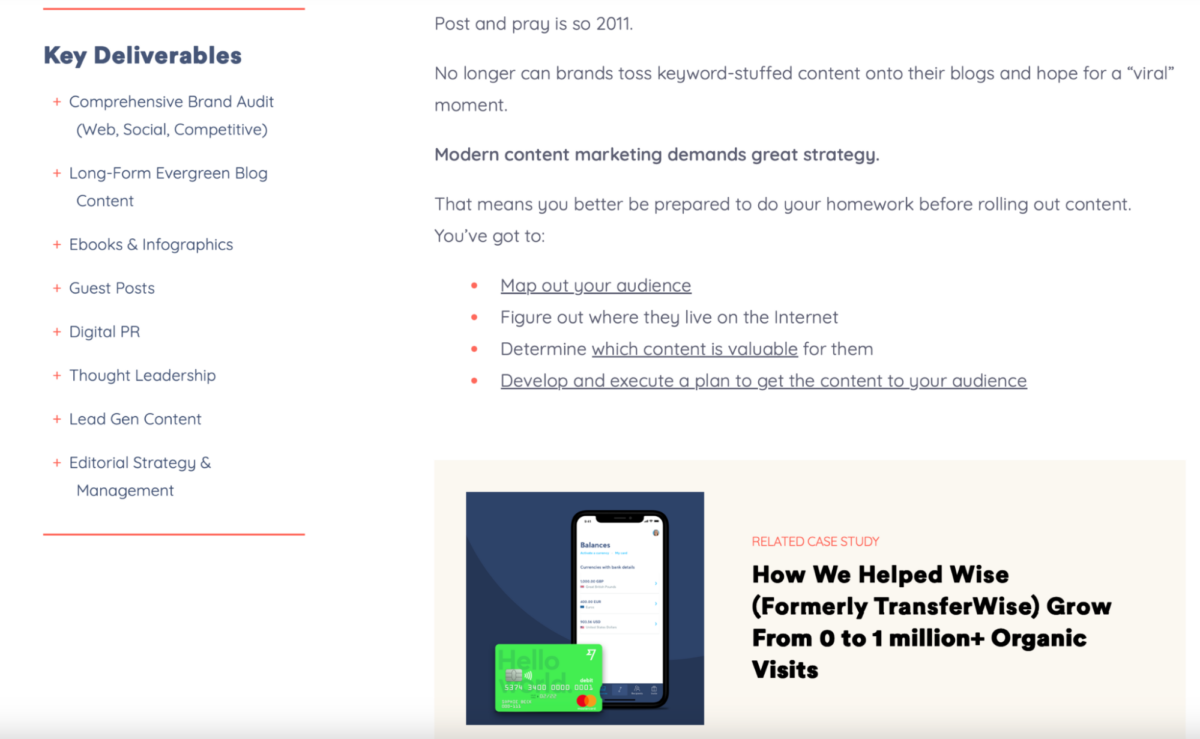The financial technology industry is incredibly competitive, with over 26,000 fintech startups clamoring for a slice of this lucrative pie. With this intense competition, it has become more important than ever to increase your brand awareness and trustworthiness amongst your potential customers.
The best means to achieve these desired outcomes is to focus on search engine optimization (SEO). However, countless fintech entrepreneurs find their SEO efforts amount to lackluster results. This is due to a lack of understanding of the unique challenges and obstacles that face this complex industry.
Whether you are a hardened digital marketing strategist or a startup finding its feet, this guide will provide you with the tools needed to deploy an effective fintech SEO campaign guaranteed to boost your domain authority.
What is SEO?
Let’s start with the basics; SEO stands for search engine optimization and is a technique used to increase a website’s ranking in search engine results pages (SERPs).
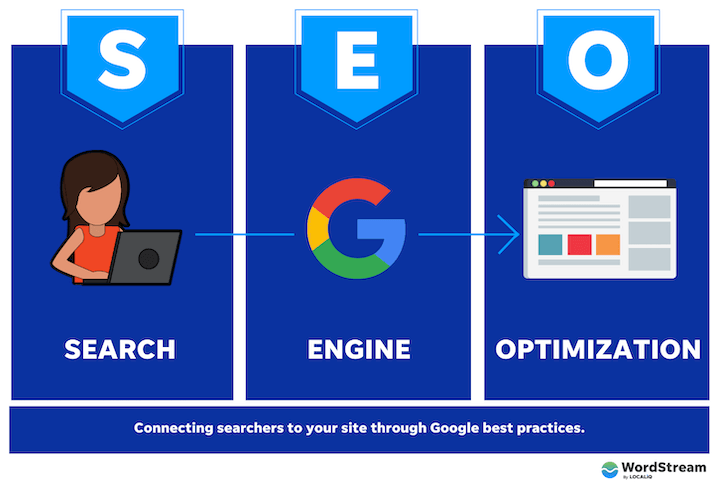
Imagine for a second that the internet is an extensive library full to the brim with billions and billions of books (websites). When a user wants to look for a book about a specific keyword, they will ask the librarian (search engine) for recommendations.

Once a request is made, the librarian will create a list of recommendations (SERPs) that prioritizes the most relevant and trustworthy books. In the context of this metaphor, SEO is the secret formula that makes your book appear more important to the librarian when relevant inquiries are made.
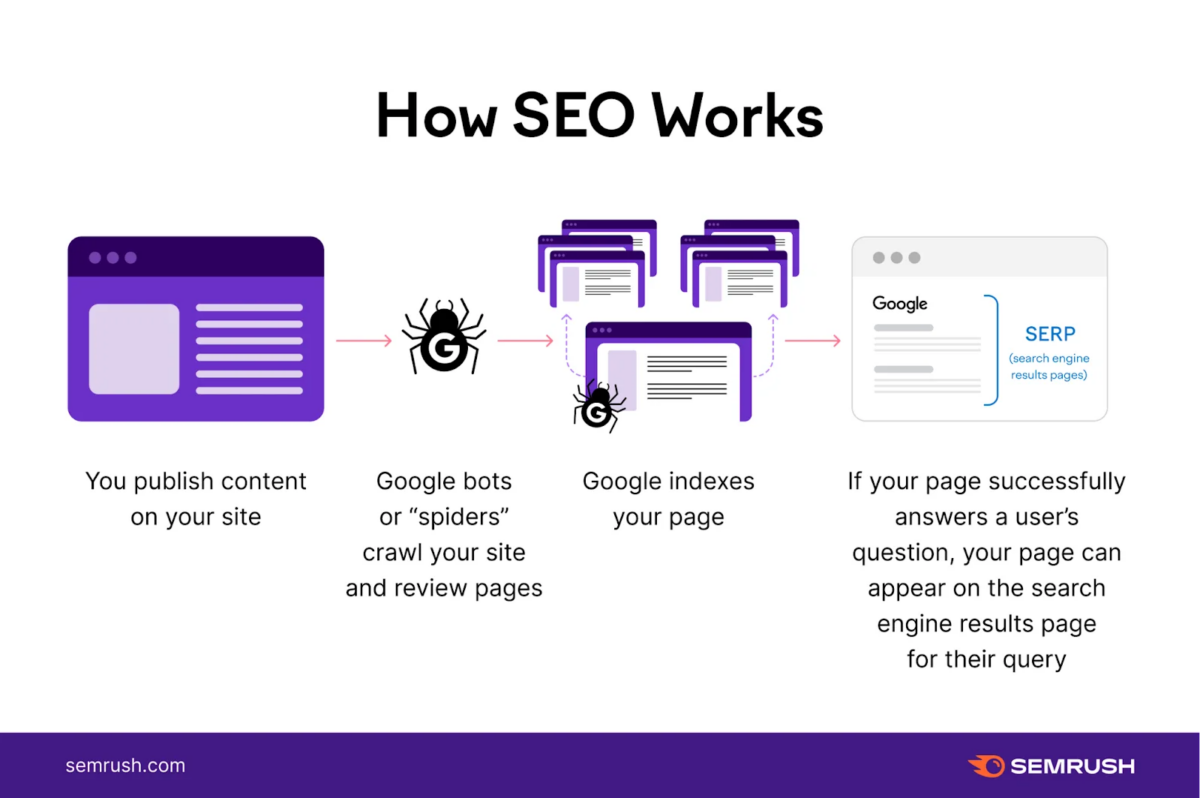
There are numerous different SEO techniques that are used to appease search engine algorithms, including:
- Backlinks from external websites
- Keyword research
- Engaging meta descriptions and titles
- User experience, i.e., site speed, mobile optimization, and sitemaps.
- High-quality content creation
- Image and video optimization
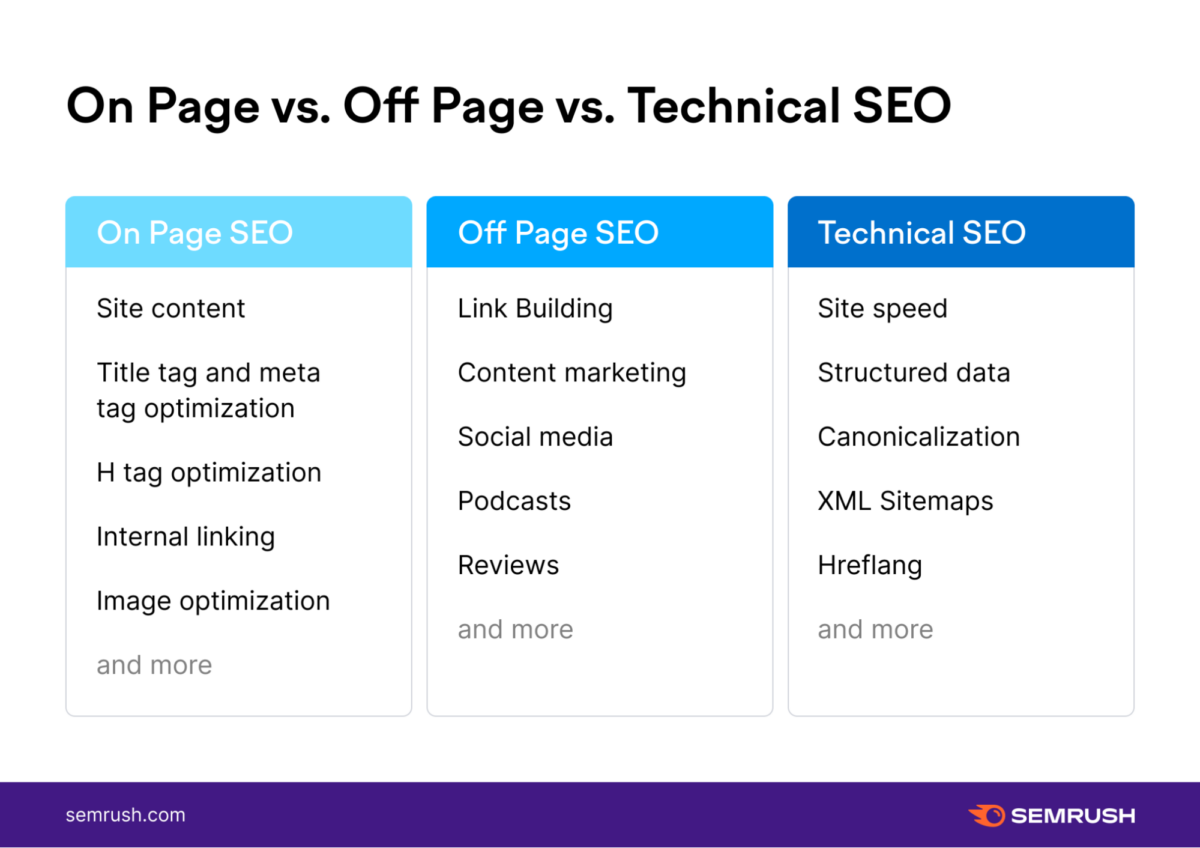
Benefits of fintech SEO
As a business owner, you are most likely curious about how exactly SEO can help your fintech startup. Here are some of the key benefits that this approach delivers for those in the financial sector:
- Increased online visibility: SEO helps improve a company’s search engine rankings, making it more visible to potential customers when they search for relevant financial products or services.
- Targeted traffic: By optimizing for specific keywords related to fintech products and services, marketing teams can attract targeted traffic to the website. This means that the visitors are more likely to be interested in what the company offers, leading to higher conversion rates.
- Cost-effectiveness: Compared to traditional advertising methods, SEO can be a cost-effective way to generate leads and acquire customers. Once a website achieves good rankings, it can continue to drive organic traffic without ongoing ad spend.
- Credibility and trust: Websites that appear at the top of search engine results are often perceived as more trustworthy and credible by users.
- Competitive advantage: Ranking higher than competitors in search results can lead to increased market share and customer acquisition.
- Better user experience: SEO involves improving website structure, navigation, and content, which ultimately enhances the user experience. A positive user experience can lead to higher engagement and longer website visits.
- Data-driven insights: SEO tools provide invaluable data and insights about user behavior, keyword performance, and website performance. These insights can be used to refine marketing strategies and improve overall business performance.
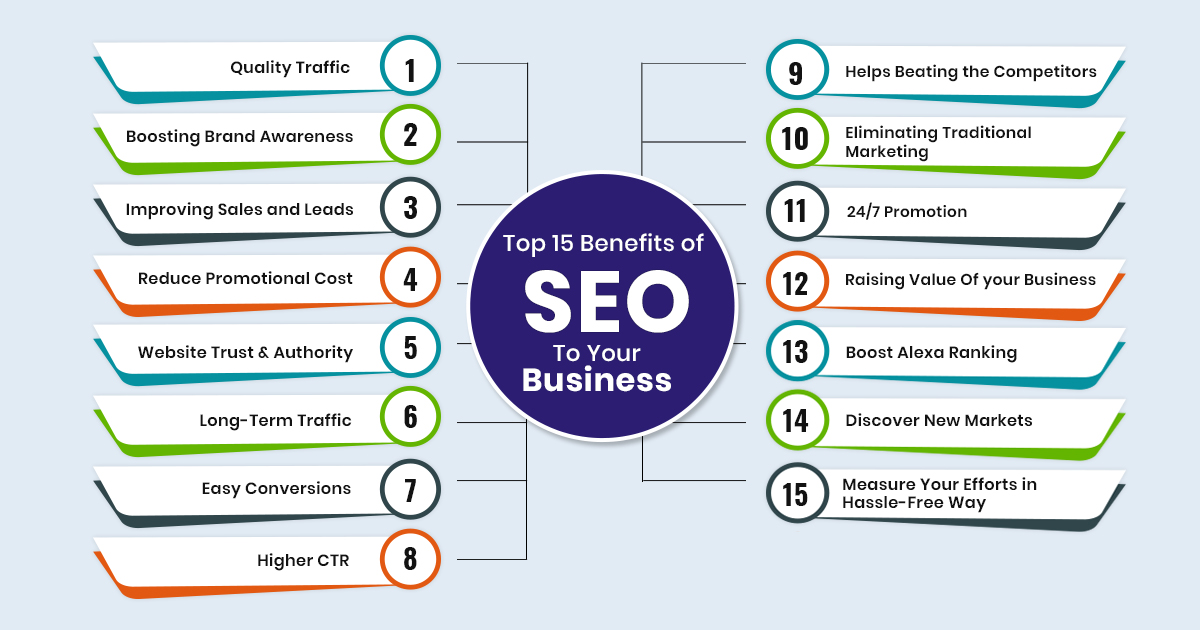
A peek inside Google’s PageRank algorithm
There are countless search engines available to consumers, including:
- Microsoft Bing
- Yahoo!
- Ask.com
- Yandex
- AOL
- Baidu
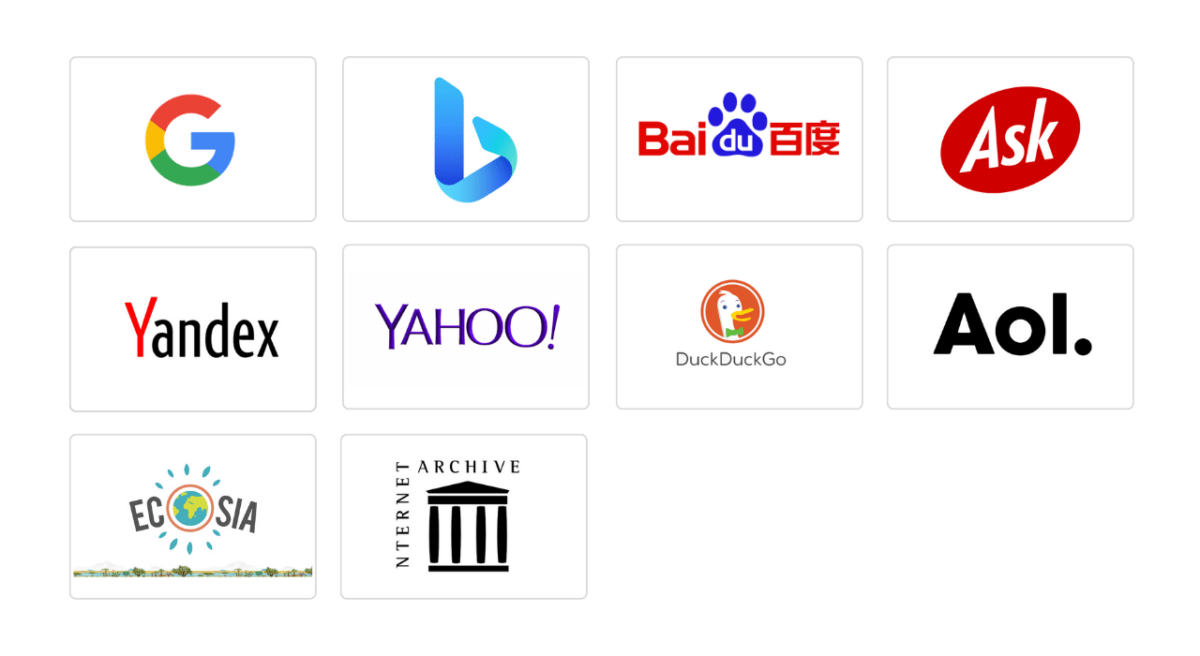
However, Google is undeniably the most popular search engine, with over 92.6% of all traffic coming from this website.
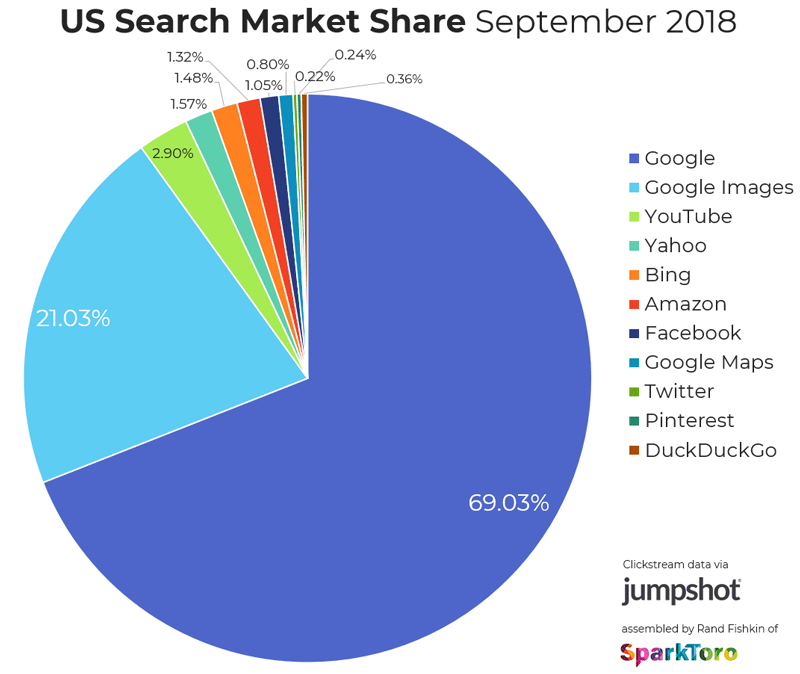
With this knowledge in mind, it seems incredibly important to understand the factors that affect Google’s algorithm, known as PageRank.
The central ranking factor is known as the acronym EAT, which stands for:
- Expertise- The website or author must have a high level of knowledge in the specific field.
- Authoritativeness- The authoring body must have a solid reputation among experts and influencers in the industry.
- Trustworthiness– The website should be legitimate, transparent, and accurate.
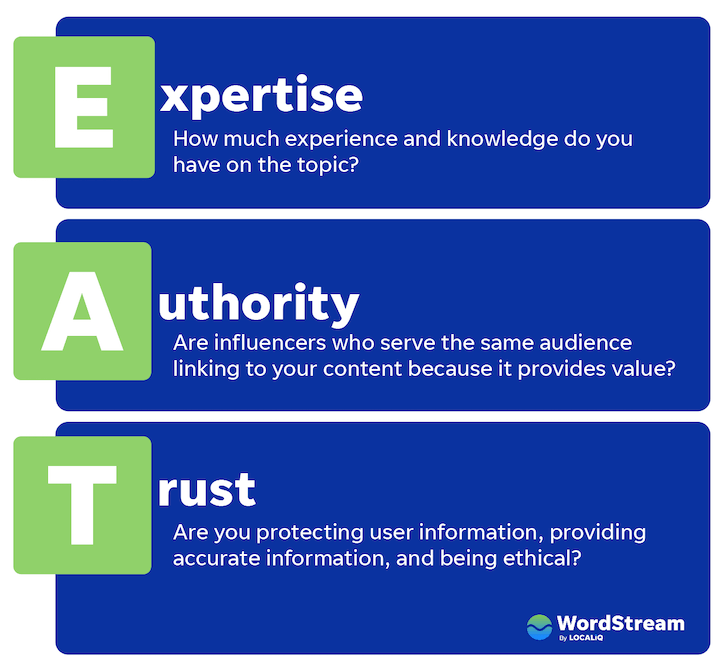
In the below table, we have outlined some of the other crucial factors the algorithm considers when ranking web pages.
| Factor | Definition |
| Backlinks | The number and quality of backlinks from external sources to a webpage. |
| Linking page authority | Backlinks from authoritative and well-established websites have a more significant impact on ranking. |
| Internal links | Well-organized internal linking can help pass authority and relevance among pages within the site. |
| Anchor text | Relevant anchor text that includes targeted keywords can help search engines understand the context and content of the linked page. |
| Content quality | High-quality, relevant content that provides value to users is more likely to be backlinked and shared. |
| User engagement metrics | A page that engages users and encourages them to spend more time on the site will be seen as more valuable to search engines. |
| Page load speed | Faster-loading pages tend to have better user experiences and, therefore, are more valuable to users. |
| Mobile friendly | Websites that are optimized for mobile devices may receive a slight advantage in ranking for mobile searches. |
| Website security | Websites that use security measures will often rank higher than non-secure sites. |
| Content age | Fresh content is likely to rank better, especially for topics where the latest information is crucial. |
| Site architecture | A well-structured website with clear hierarchies and easy navigation can positively influence ranking. |
| Domain diversity | Having backlinks from a diverse range of domains can signal to a search engine that the content is valuable and relevant to a broader audience. |
| Content format diversity | Pages that offer content in various formats, such as text, images, videos, and infographics, may cater to a broader audience and potentially rank better. |
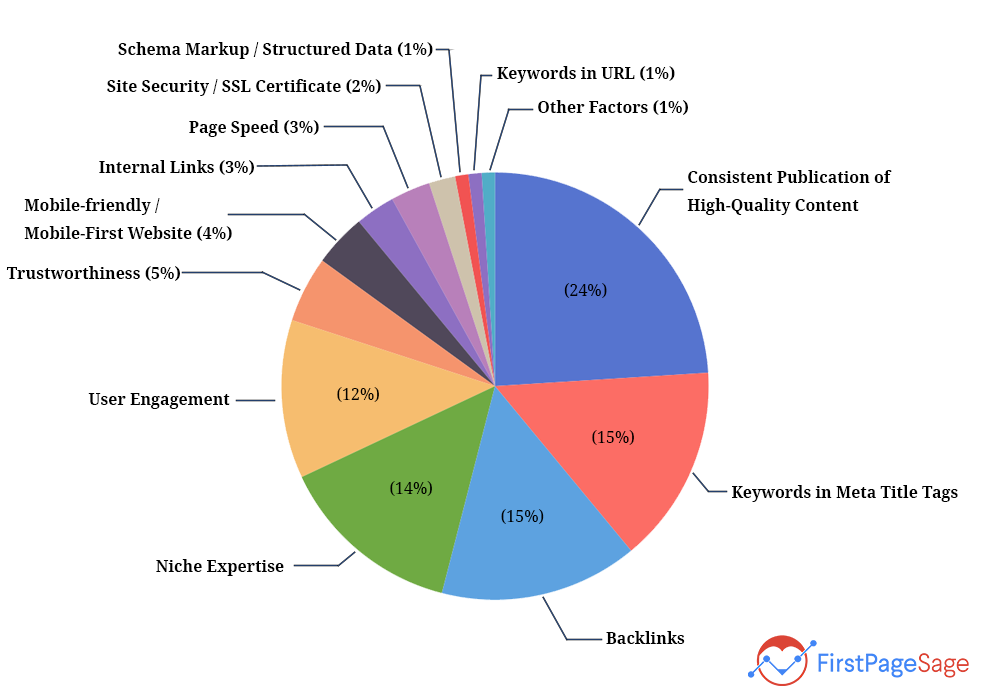
The unique challenges of fintech SEO
The financial technology sector comes with countless unique challenges surrounding search engine optimization, including:
- Your Money or Your Life (YMYL): Google categorizes certain types of content as YMYL. These are web pages that could impact “the future happiness, health, financial stability, or safety of users.” fintech websites are included within this bracket and therefore are under much higher scrutiny to ensure consumer safety.
- Technical complexities: Fintech websites often deal with complex financial data, secure transactions, and sensitive information. It is important to have a deep understanding of technical SEO to allow search engines to effectively crawl and index content securely.
Compliance and regulations: Fintech companies are subject to various financial regulations, which directly impact how they can present information and engage in marketing practices. It is essential for strategists in this industry to have a clear understanding of these best practices to ensure content adheres to these strict guidelines.
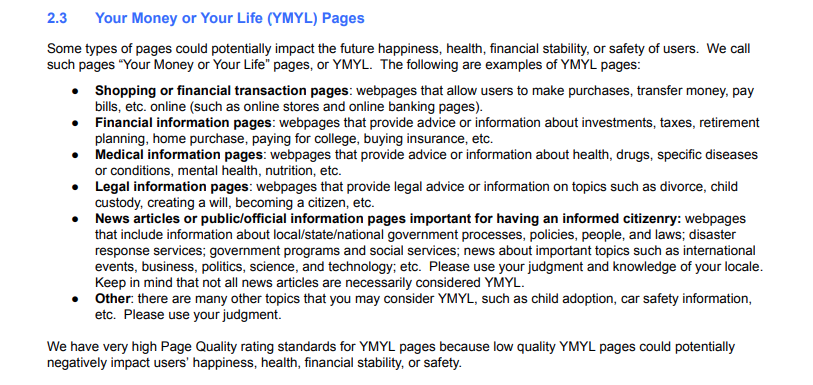
- Niche keywords: Fintech is undeniably a specialized industry with countless unique terms and jargon. SEO in this field requires in-depth keyword research to identify and target relevant keywords that potential customers may use when searching for financial products or services.
- Authority and trust: Financial services require a high level of trust from customers. SEO strategies must take this into consideration and focus on establishing authority and expertise in the industry. This can be achieved through inbound marketing, thought leadership articles, and backlinks from reputable financial websites.
- Mobile optimization: Mobile devices are often the primary means for users to access financial services. This places significant emphasis on optimizing websites for mobile users, ensuring a smooth and secure user experience.
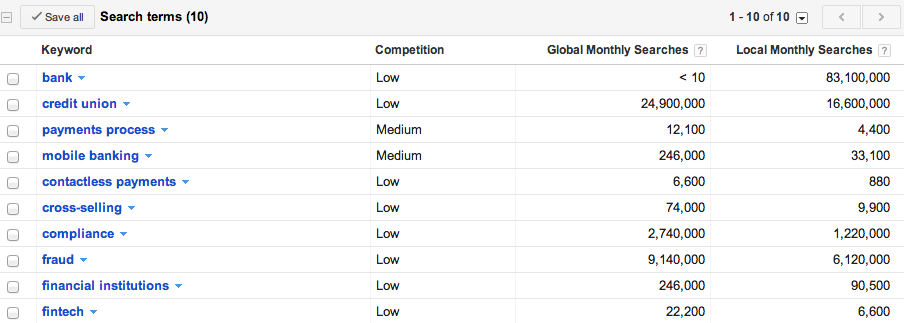
- User experience. A solid user interface is essential for consumer satisfaction, as financial transactions and interactions demand a user-friendly and trustworthy interface.
- Link building: Building high-quality backlinks is crucial for SEO success in the fintech sector. However, due to the sensitive nature of financial data, link building requires careful consideration to ensure links are relevant and come from reputable sources.
- Content strategy: In the fintech industry, content plays a vital role in educating users about financial products and building trust. It is incredibly important to develop a comprehensive content strategy that caters to the target audience‘s desire to learn while aligning with search engine algorithms.
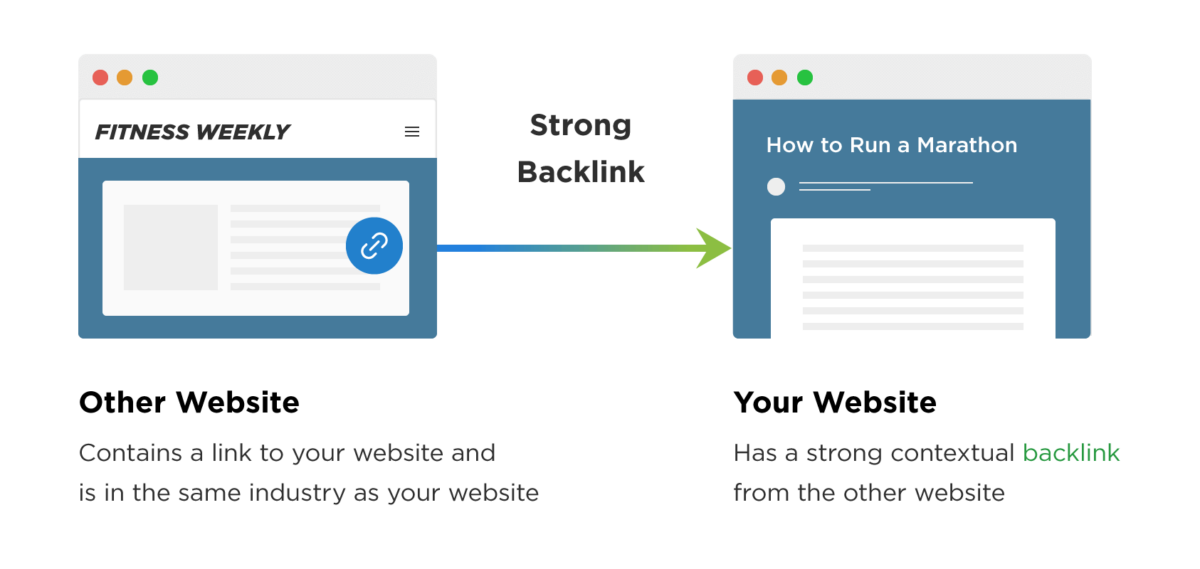
Top 3 SEO tips that work for fintech businesses
Due to the unique nature of the fintech industry, it is important to employ innovative techniques to generate backlinks and improve ranking. We have selected 3 top tips that are sure to optimize your web page and content for search engines.
1. Share your success with a case study
To reach the top of the results pages, it is essential to have high-quality backlinks that boost your authority on a subject.
To achieve this mammoth undertaking, many business owners look toward content marketing for an answer. However, the sheer amount of different types of content available can be overwhelming and can leave entrepreneurs scratching their heads, wondering which is the most effective.
We can wholeheartedly recommend employing case studies in your content strategy to attract authoritative backlinks. These pieces of content can shine a spotlight on your success, highlighting how your solutions have revolutionized a client’s finances and solved pain points.
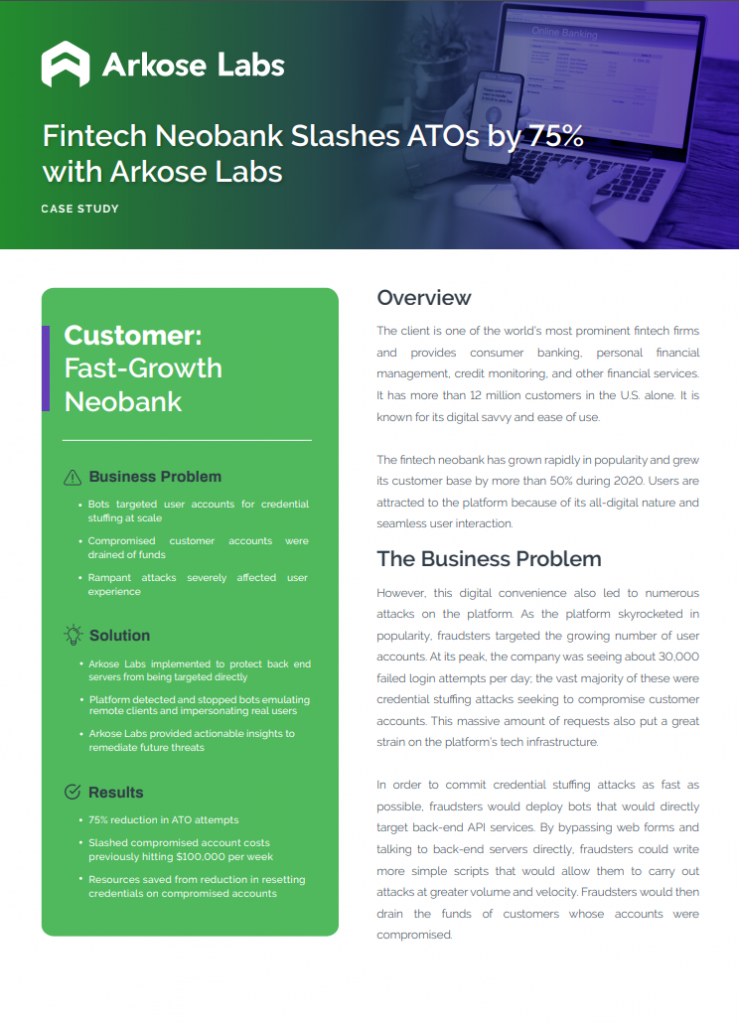
Case studies come with an abundance of benefits that should make them a priority within any content creation schedule, including:
- Demonstrating your expertise: Case studies serve as a showcase of your company’s expertise and the value it brings to clients. This presents your business as an industry thought leader and encourages link-building.
- Targeting long-tail Keywords: Case studies often delve into detailed information about specific use cases, benefits, and outcomes of your fintech product. These narratives naturally incorporate long-tail keywords that potential customers might use in their search queries.
Creating unique content: Crafting an engaging narrative about your product creates an incredibly unique piece of content that cannot be replicated by other providers. This is incredibly attractive to content creators who want to reference relevant information in their own work via backlinks.
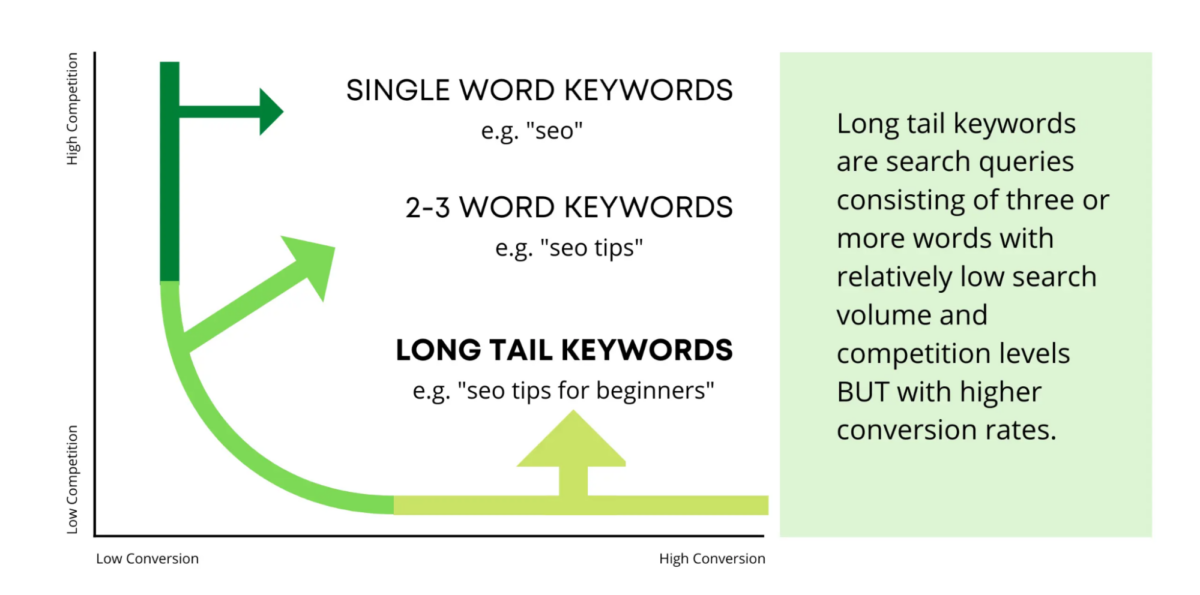
A case study can be about almost any topic, from payment solutions to lending platforms; however, we recommend following these tips to ensure your content is successful.
- Seek out clients who have experienced notable improvements, achieved specific goals, or overcome significant challenges with your solution.
- Choose case studies that cover a diverse range of use cases and industries.
- A strong case study should have quantifiable results and data to back up the claims. Metrics such as cost savings, revenue growth, increased efficiency, or reduced processing time provide concrete evidence of your effectiveness.
- Ensure that the client featured in the case study is willing to participate and provide testimonials.
- Look for case studies with engaging and compelling narratives. A well-told story can captivate readers and make the case study more memorable and shareable.
- Consider case studies that can be visually enhanced with charts, graphs, images, and infographics.
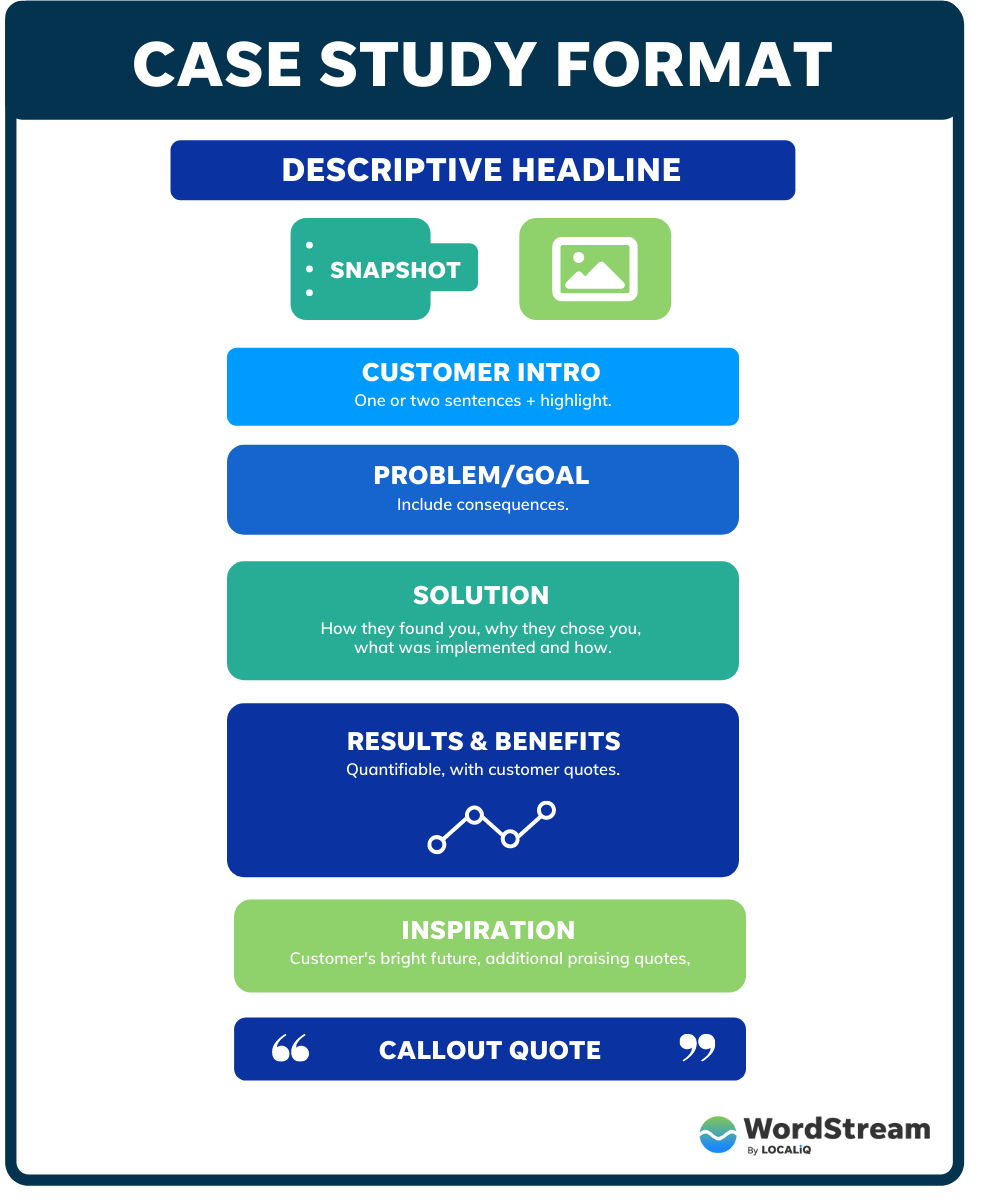
Other types of content that are incredibly effective at generating backlinks include:
- FAQs
- Infographics
- Guest posts
- Tools and calculators
- Tutorials and guides
- Industry roundups
2. Turn to technical SEO
Contrary to popular belief, search engine optimization is not all about content. In fact, technical SEO instead focuses on the behind-the-scenes magic that makes your webpage more visible in search results.

Technical SEO mainly focuses on website structure and performance, including the following aspects:
- Website speed and performance: Ensuring that the website loads quickly and performs well is crucial as search engines prioritize websites that offer a positive user experience.
- Mobile responsiveness: With the rise of mobile device usage, search engines prioritize mobile-friendly websites over desktop-centric web pages.
- Crawlability and indexability: It is important that search engine bots can crawl and index all relevant pages on the website. This involves creating a clear sitemap, managing robots.txt files, and avoiding issues like duplicate content.
- URL structure and hierarchy: Creating a logical URL structure that reflects the website’s content hierarchy helps search engines understand the relationships between different pages and content sections.
- Canonicalization: Avoiding duplicate content issues through proper canonicalization is an important practice. Canonical tags help indicate the preferred version of a page when there are multiple URLs with similar content.
- SSL certificate and HTTPS: Securing the website with an SSL certificate and enabling HTTPS is crucial for ensuring data security.
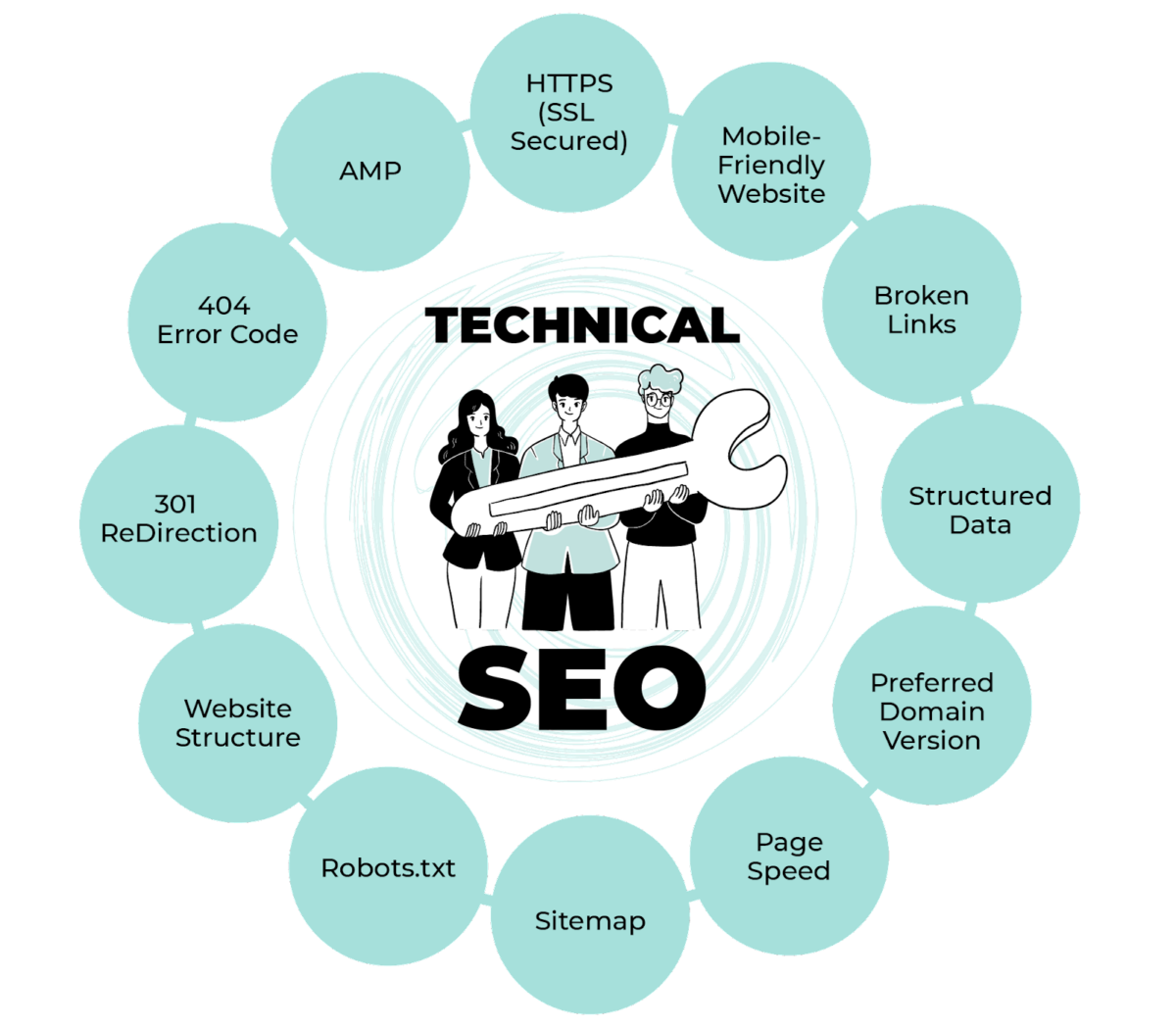
This type of SEO maintenance can yield countless benefits for your webpage, including:
- Improved crawling and indexing: Technical SEO ensures that your pages are easily accessible to search engine crawlers, increasing the chances of ranking well in SERPs.
- Better user experience: Faster loading times, mobile responsiveness, and smooth navigation enhance user satisfaction, leading to lower bounce rates and increased engagement.
- Mobile-friendly: This type of SEO ensures your website is able to adapt to a multitude of different screen sizes, leading to better rankings in mobile searches.
- Avoid penalties: Duplicate content, broken links, and improper redirects can cause search engines to penalize websites and knock them down the rankings. Providing constant maintenance and upkeep ensures that business owners avoid these penalties.
- Sustainable results: While content and marketing strategies may change over time, technical SEO provides consistent long-term benefits. Once you establish a solid technical foundation, it requires less ongoing maintenance compared to other SEO tactics.

3. Do your research
Keyword research is the process of identifying the specific words and phrases that people use in search engines when looking for information, products, or services related to your industry.

In the world of fintech, keyword research is viewed as a compulsory practice as it allows business owners to:
- Understand search intent: Keyword research helps you understand what exactly potential customers are searching for. This information provides you insights into their needs, pain points, and preferences, enabling you to create content that directly addresses their interests.
- Competitive analysis: In this competitive sector, understanding which keywords your competitors are targeting can provide valuable information. You can identify gaps in their strategies and find opportunities to differentiate your content from the rest of the industry.
- Optimizing content: By incorporating relevant keywords in your web pages, blog posts, and other marketing materials, you improve the chances of ranking higher in search engine results.
- Content planning: Armed with keyword insights, you can plan your content strategy more effectively. You can create content around high-volume keywords to attract a broader audience and target long-tail keywords to address more niche queries.
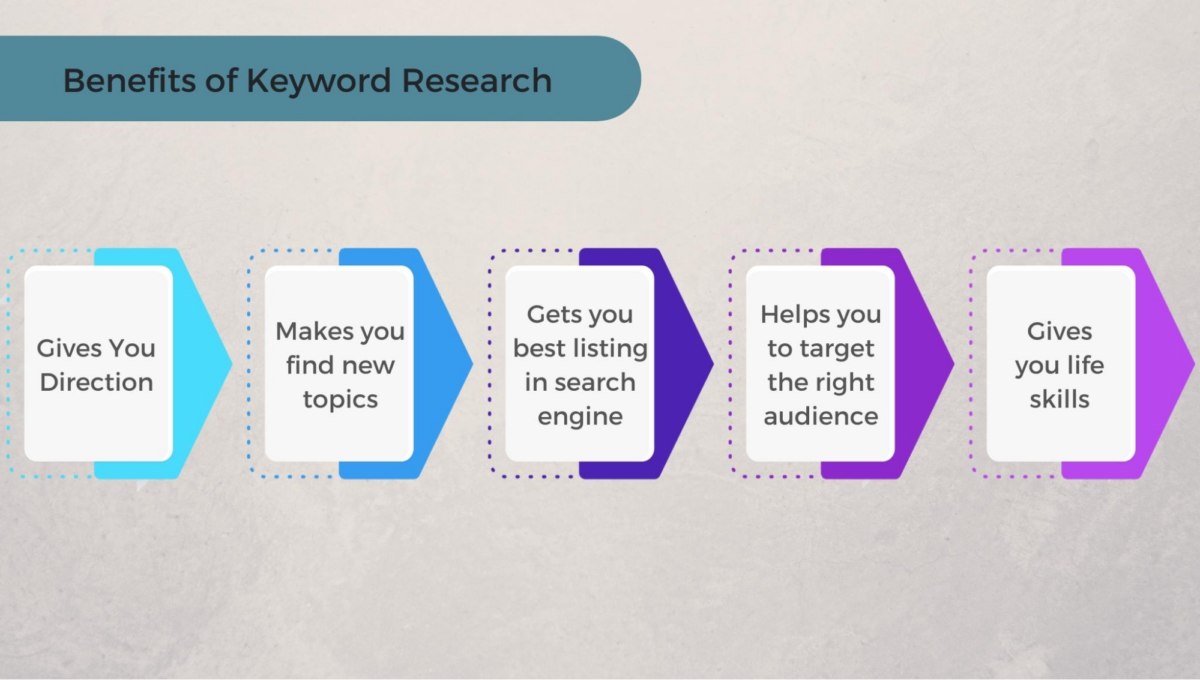
But how exactly do you perform keyword research? Here is our guide to performing the ultimate research expedition into the uncharted jungles of keywords.
- Start by clarifying your SEO goals and target audience. Understand what you want to achieve with your content and who your ideal customers are.
- Brainstorm a list of seed keywords related to your business, products, or services.
- Utilize keyword research tools like Google Keyword Planner, Ahrefs, Semrush, or Moz Keyword explorer to expand your keyword list. These tools will provide keyword ideas, search volumes, and competition data.
- It is important to also examine your competition to identify the keywords they are targeting and ranking for.
- Consider utilizing long-tail keywords that are more specific and typically have lower search volumes but higher conversion potential.
- Analyze your list of keywords and filter out irrelevant or highly competitive ones.
- Organize your keywords into thematic groups based on their relevance and intent. This will help you create targeted content for specific topics.
- Evaluate the keyword difficulty or competition level for each keyword. Aim for a mix of high and low competition keywords to build a balanced content strategy.
- Use your keyword research findings to guide your content strategy. Develop high-quality content around the selected keywords, aiming to provide value.
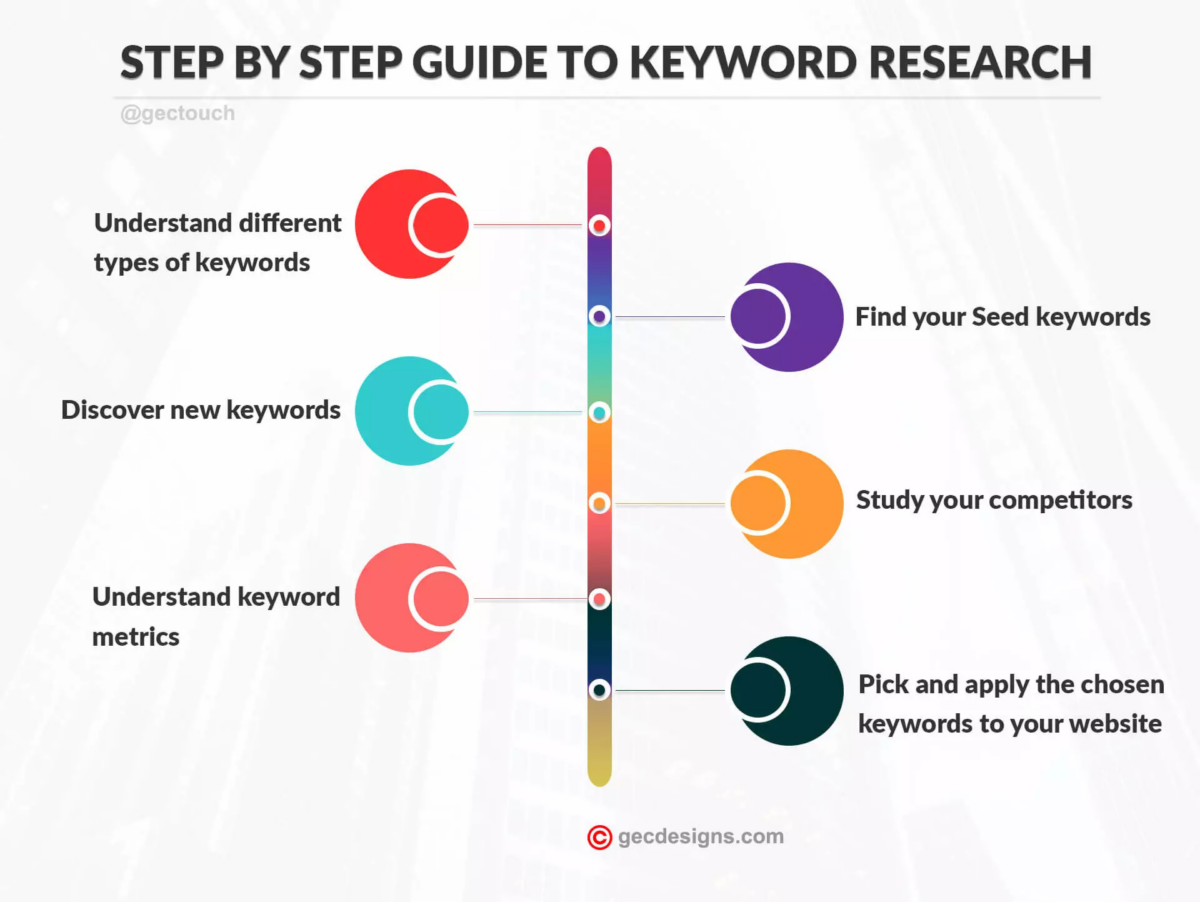
Metrics to follow for fintech marketing
Now that we have crafted a solid fintech SEO strategy full to the brim with innovative techniques, it is essential to monitor the success of this campaign. There are a wide range of metrics used to gauge the impact of SEO tactics on your brand which can be viewed in the table below.
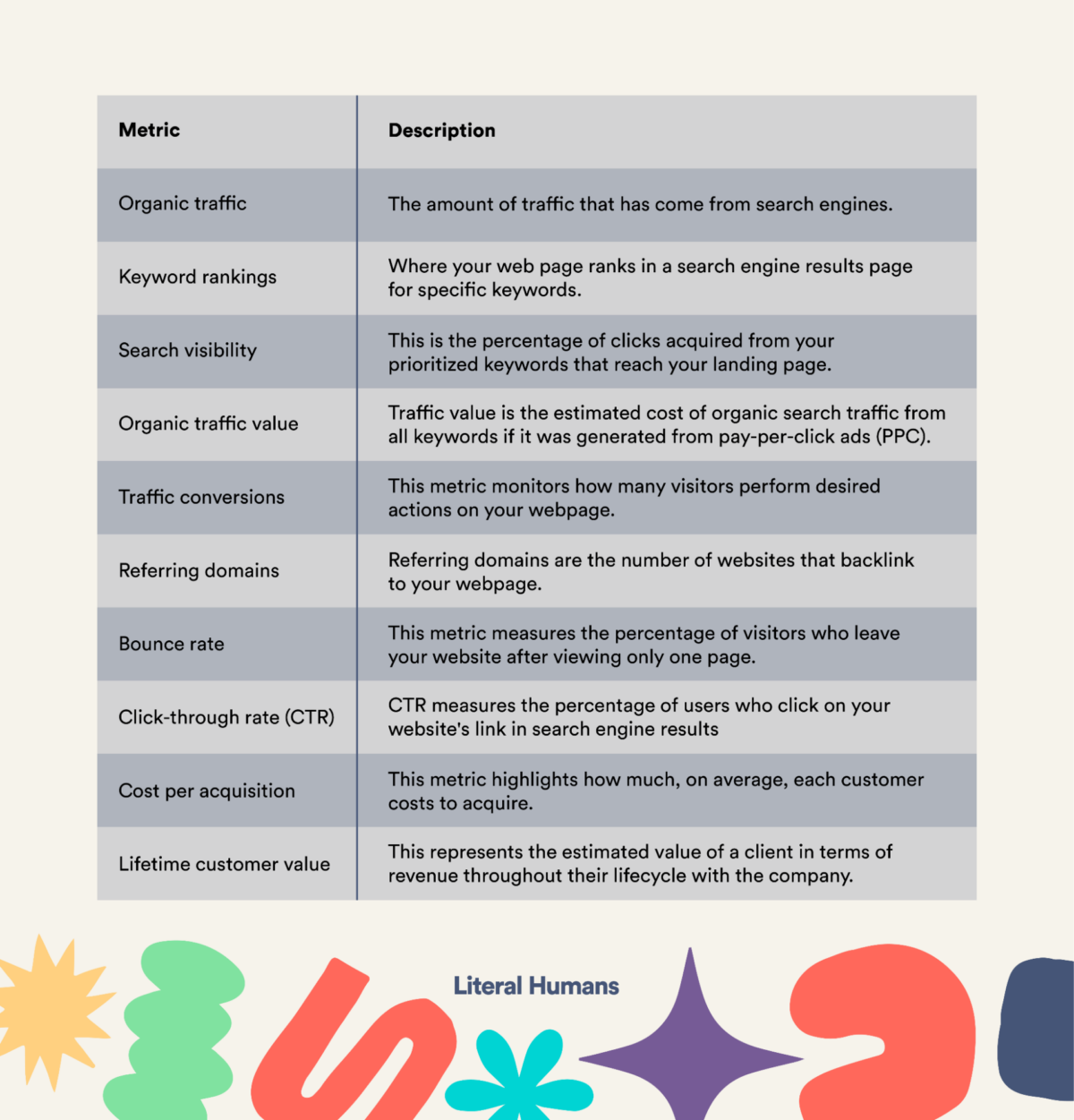
Need more help?
While we have provided an in-depth guide to the world of SEO in fintech companies, it can still be undeniably overwhelming for those uninitiated with the complexities of marketing strategy.
While it indeed may seem tempting to undergo this mammoth task in-house, we would like to recommend the use of marketing agencies to reduce this burden. There are numerous companies around the web that specialize in SEO consulting; however, we here at Literal Humans offer the best service for fintech clients at incredibly affordable pricing.
Our all-inclusive SEO service includes the following:
- Comprehensive brand audit
- Long-form evergreen blog content
- Ebooks and infographics
- Guest posts
- Digital PR
- Thought leadership
- Lead gen content
- Editorial strategy and management
For more information about our incredible SEO agency, schedule a strategy session now.
